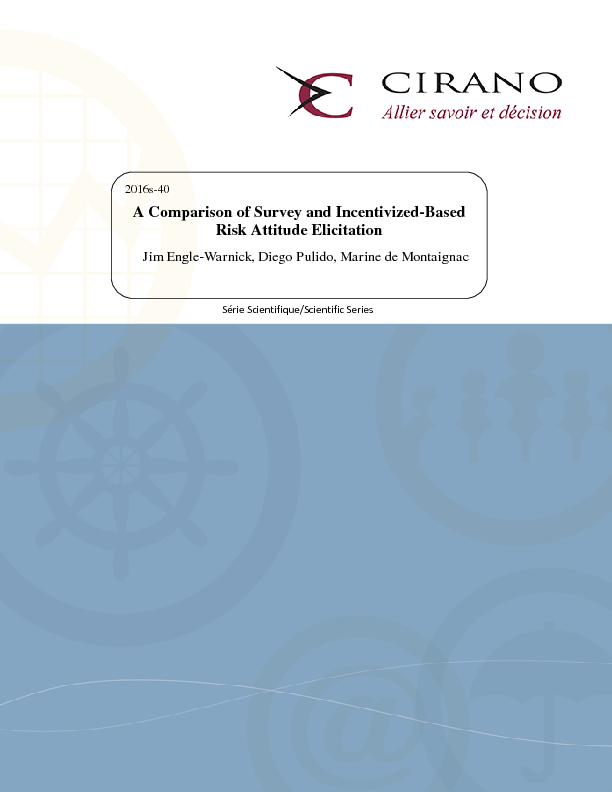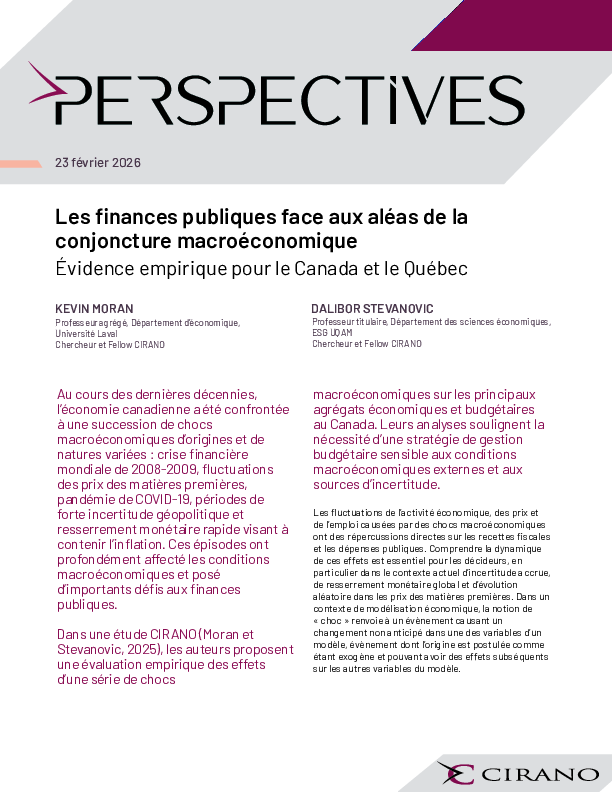A Comparison of Survey and Incentivized-Based Risk Attitude Elicitation
This
paper reports results from an on-line economics experiment with heads of households
that explores the link between a sample of survey questions on the Canadian
Know-Your-Client survey form and several incentivized laboratory instruments,
both aimed at measuring risk attitudes and loss aversion. We find that the
instruments significantly predict responses to risk questions, with the
exception of a question that includes a time dimension. By contrast, the loss aversion
instruments do not predict responses to loss questions. Indeed, if anything,
risk instruments predict the majority of the loss questions. We conclude that
the survey appears to be successful in eliciting attitudes towards risk; that
the survey appears to be less successful with regard to loss aversion; and that
it may be useful to include survey questions about higher order risk
preferences on the form.
[ - ]




